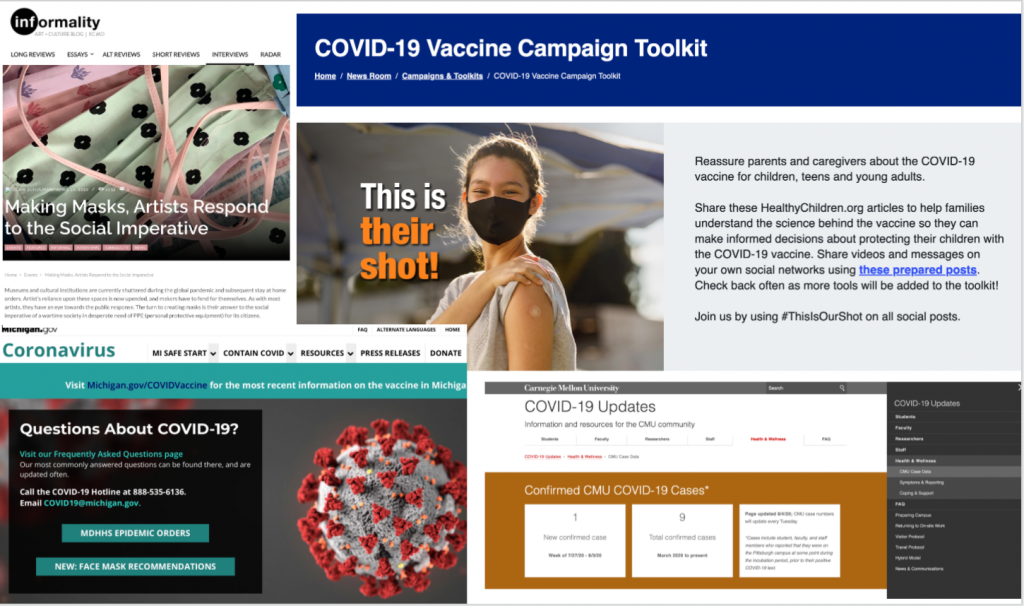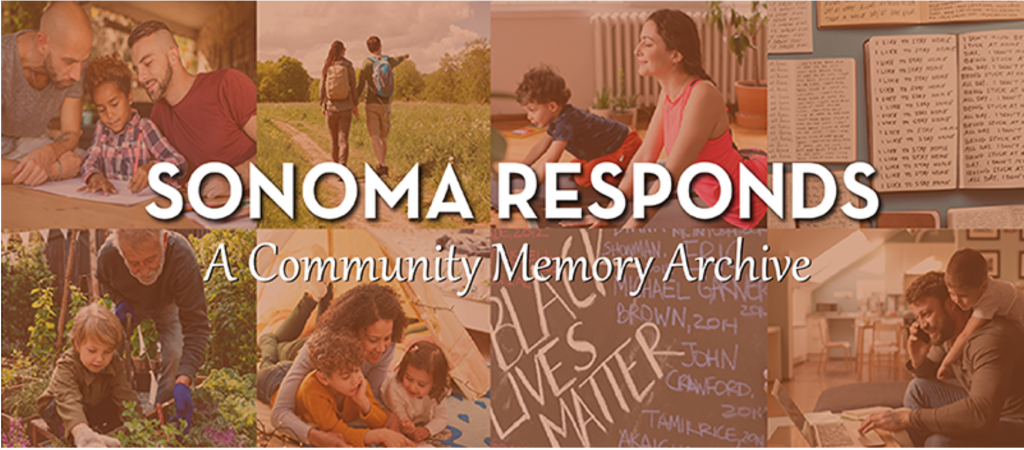The COVID-19 pandemic has been life-changing for people around the globe. As efforts to slow the progress of the virus unfolded in early 2020, librarians, archivists and others with interest in preserving cultural heritage began considering ways to document the personal, societal, and systemic impacts of the global pandemic. These collections included preserving physical, digital and web-based information and artifacts for posterity and future research use.

In response, the Internet Archive’s Archive-It service launched a COVID-19 Web Archiving Special Campaign starting in April 2020 to allow existing Archive-It partners to increase their web archiving capacity or new partners to join to collect COVID-19 related content. In all, more than 100 organizations took advantage of the COVID-19 Web Archiving Special Campaign and more than 200 Archive-It partner organizations built more than 300 new collections specifically about the global pandemic and its effects on their regions, institutions, and local communities. From colleges, universities, and governments documenting their own responses to community-driven initiatives like Sonoma County Library’s Sonoma Responds Community Memory Archive, a variety of information has been preserved and made available. These collections are critical historical records in and of themselves, and when taken in aggregate will allow researchers a comprehensive view into life during the pandemic.

We have been exploring with partners ways to provide unified access to hundreds of individual COVID-related web collections created by Archive-It users. When the Institute of Museum and Library Services launched the American Rescue Plan grant program, that was part of the broader American Rescue Plan, a $1.9 trillion stimulus package signed into law on March 11, we applied and were awarded funding to build a COVID-19 Web Archive access portal – a dedicated search and discovery access platform for COVID-19 web collections from hundreds of institutions. The COVID-19 Web Archive will allow for browsing and full text search across diverse institutional collections and enable other access methods, including making datasets and code notebooks available for data analysis of the aggregate collections by scholars. This work will support scholars, public health officials, and the general public in fully understanding the scope and magnitude of our historical moment now and into the future. The COVID-19 Web Archive is unique in that it will provide a unified discovery mechanism to hundreds of aggregated web archive collections built by a diverse group of over 200 libraries from over 40 US states and several other nations, from large research libraries to small public libraries to government agencies. If you would like your Archive-It collection or a portion of it included in the COVID-19 Web Archive, please fill out this interest form by Friday, April 29, 2022. If you are an institution in the United States that has COVID-related web archives collected outside of Archive-It or Internet Archive services that you are interested in having included in the COVID-19 Web Archive, please contact covidwebarchive@archive.org.
I will have Coronavirus Pandemic Collection from around the world because I love it.
That was great for everybody! Good luck with that. Love you!
I get to it! Goodbye for now.
Have a great Wednesday afternoon! Bye.